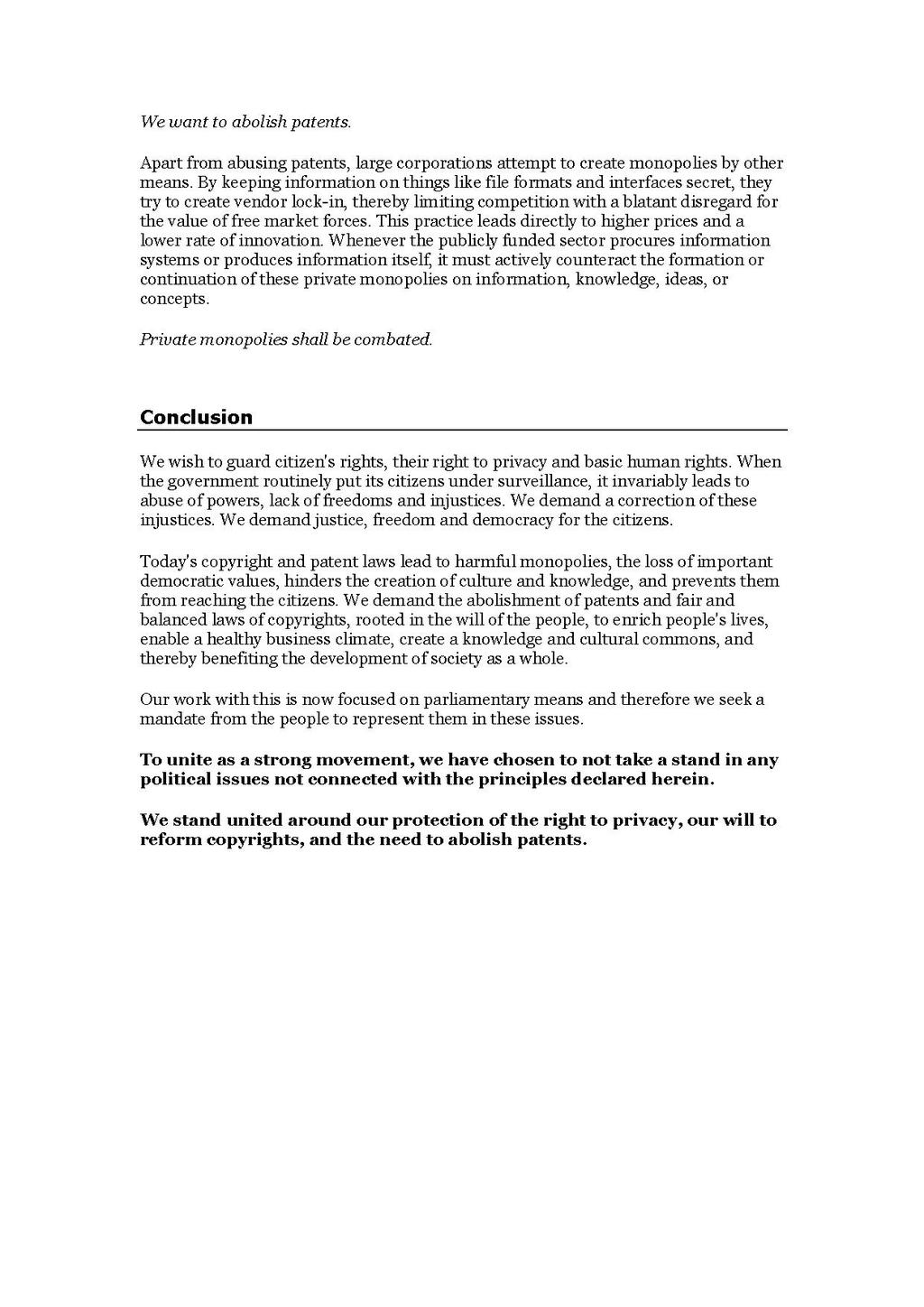We want to abolish patents.
Apart from abusing patents, large corporations attempt to create monopolies by other means. By keeping information on things like file formats and interfaces secret, they try to create vendor lock-in, thereby limiting competition with a blatant disregard for the value of free market forces. This practice leads directly to higher prices and a lower rate of innovation. Whenever the publicly funded sector procures information systems or produces information itself, it must actively counteract the formation or continuation of these private monopolies on information, knowledge, ideas, or concepts.
Private monopolies shall be combated.
Conclusion
We wish to guard citizen's rights, their right to privacy and basic human rights. When the government routinely put its citizens under surveillance, it invariably leads to abuse of powers, lack of freedoms and injustices. We demand a correction of these injustices. We demand justice, freedom and democracy for the citizens.
Today's copyright and patent laws lead to harmful monopolies, the loss of important democratic values, hinders the creation of culture and knowledge, and prevents them from reaching the citizens. We demand the abolishment of patents and fair and balanced laws of copyrights, rooted in the will of the people, to enrich people's lives, enable a healthy business climate, create a knowledge and cultural commons, and thereby benefiting the development of society as a whole.
Our work with this is now focused on parliamentary means and therefore we seek a mandate from the people to represent them in these issues.
To unite as a strong movement, we have chosen to not take a stand in any political issues not connected with the principles declared herein.
We stand united around our protection of the right to privacy, our will to reform copyrights, and the need to abolish patents.
